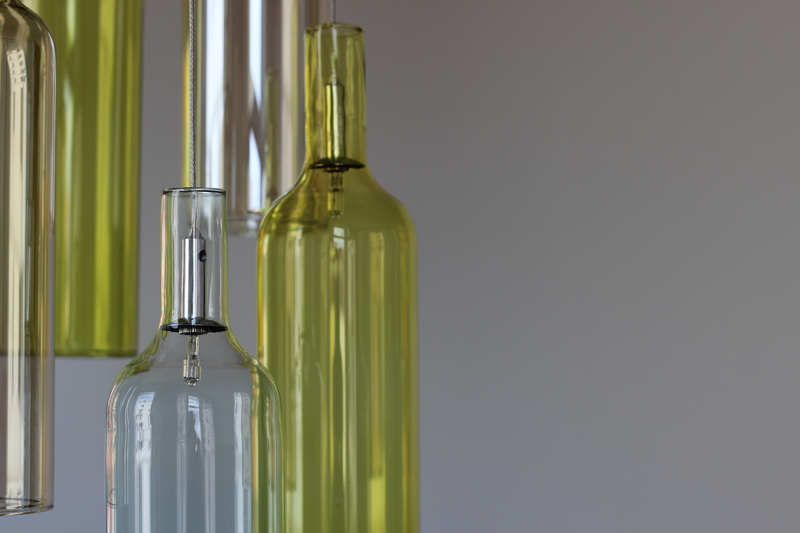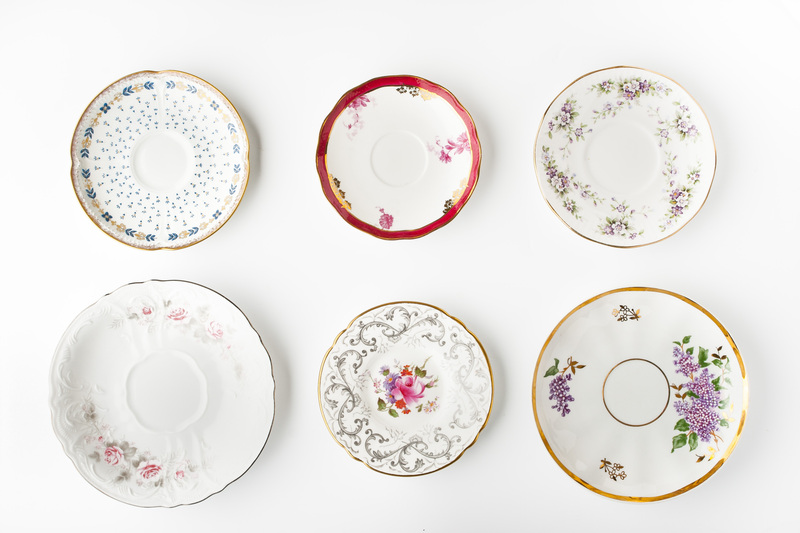How to Give New Life to Pots and Pans Through Recycling
Pots and pans are essential components of every kitchen. However, over time, these trusted utensils can become worn out, lose their non-stick coating, or simply fall out of regular use. Rather than disposing of them and contributing to landfill waste, discovering creative and eco-friendly solutions for giving them a new life can benefit both your home and the planet.
In this comprehensive guide, we will explore how to recycle old cookware, transforming outdated pans and pots into functional, beautiful, or even artistic items. You'll discover where and how to recycle cookware responsibly, uncover smart upcycling ideas for pots and pans, and learn practical tips for incorporating sustainable practices into your kitchen routine.
Why Should You Recycle Pots and Pans?
Recycling old pots and pans goes far beyond just clearing out your cabinets. There are several compelling reasons to give these kitchen items a new lease on life:
- Environmental conservation: Most cookware is made of metals like aluminum or stainless steel, which are non-biodegradable. Recycling prevents unnecessary waste in landfills.
- Resource savings: Producing new metal items from recycled materials requires less energy and fewer raw materials compared to manufacturing from scratch.
- Cost-effectiveness: Upcycling can save you money by turning old cookware into handy items or decor, eliminating the need to purchase new products.
- Creativity and personalization: Repurposing items allows you to add personal flair to your home with unique, customized pieces.
- Supporting circular economy: Keeping materials in use for as long as possible benefits both the environment and society.

Can Pots and Pans Be Recycled?
Yes! Most pots and pans can be recycled, but the process depends on their material and local recycling policies. The majority of cookware is made from metals such as:
- Stainless steel
- Aluminum
- Copper
- Cast iron
Non-metal parts such as handles, glass lids, or plastic coatings may need to be removed, as they complicate the recycling process. Specialty coatings like Teflon or enamel can also require special handling, so it's important to check with your local facility or municipal waste service.
How to Prepare Pots and Pans for Recycling
To ensure your cookware is ready for recycling, follow these steps:
- Thoroughly clean the pots and pans, removing any food residue or grease.
- Disassemble the cookware--take off plastic, rubber, or wood handles, and separate lids from the main body.
- Sort by material: Group together similar metals for easier processing at recycling centers.
- Check for labels or manufacturer instructions regarding recycling recommendations or restrictions.
Where to Recycle Old Cookware
Once your pots and pans are ready, several options are available for proper recycling:
1. Local Recycling Centers
Many municipal recycling centers accept metal cookware in their scrap metal collection. Call ahead or review their guidelines online to confirm acceptance policies. Large handles or accessories should be removed if they're made of non-metal materials.
2. Scrap Metal Yards
Scrap yards often accept pots, pans, and other metal utensils. These facilities will melt down the metal, making it available for new products. In some cases, you might even receive payment for your scrap metal!
3. Retailer "Take Back" Programs
Certain cookware brands and major retailers now run recycling or trade-in programs. Some stores, such as those selling eco-friendly housewares, collect worn-out pans for responsible recycling. Check with the store where you purchased your cookware or research local options online.
4. Donation Centers
If your pots and pans are still functional (even if they show signs of wear), consider donating them to:
- Thrift shops
- Charitable organizations
- Community kitchens
This way, you extend the life of your cookware and support those in need.
5. Specialized Recycling Events
Some communities organize seasonal or annual collection events for "hard-to-recycle" items, including cookware. Look for announcements from your local government or recycling groups.
Creative Ways to Upcycle Old Pots and Pans
Before you recycle, consider upcycling old cookware into something beautiful or functional for your home or garden. Here are some inventive ideas to turn pots and pans into practical treasures:
1. Planters for Your Garden
Old pots, pans, and even teapots make excellent planters. Simply drill a few holes for drainage, fill with potting soil, and add your favorite flowers or herbs. Arrange them on patios or hang them for a rustic touch.
- Pans with worn coatings are perfect for outdoor use.
- Add a splash of paint or mosaic tiles for extra charm.
2. Organizational Tools
Reinvent pans as organizers in different rooms:
- Shallow frying pans can be mounted on walls as mail catchers or key trays.
- Large pots become unique storage bins for art supplies, tools, or toiletries.
3. Wall Art and Decor
Let your creativity shine by turning old cookware into art:
- Arrange several pans in an artistic pattern on your kitchen wall.
- Paint or stencil designs on their surfaces.
- Convert the lids into clocks or mirrors.
4. Bird Baths and Feeders
Give wildlife a treat by reusing pans as bird baths or feeders. Attach an old pan to a wooden pole or hang it from a tree branch. Fill with water or seeds, and enjoy watching nature in your garden.
5. Candle or Soap Molds
Cast iron or metal pans can be perfect for making homemade candles or soaps. Their sturdy build withstands heat and pouring, allowing you to craft eco-friendly products.
6. Outdoor Lighting
Fashion pots or colanders with interesting holes into quirky outdoor lanterns. Place solar lights or candles inside to create a magical, dappled effect in your backyard or patio.
More Upcycling Inspiration
- Pet food dishes from small saucepans
- Serving trays with added handles
- Wind chimes using lids and metal utensils
- Jewelry holders from lid racks
Safety Tips for Repurposing Cookware
Always use caution when working with old cookware:
- Be mindful of sharp edges, rust, or loose handles.
- Wear gloves and eye protection if you're drilling or cutting metal.
- For food-related upcycling (e.g., planters or candle molds), ensure old pans are thoroughly cleaned.
- Avoid using cookware with chipped or degraded non-stick coatings for cooking, as these may leach harmful substances.
Frequently Asked Questions About Recycling Cookware
Can non-stick pots and pans be recycled?
Yes, but recycling non-stick pans can be tricky due to their Teflon or ceramic coatings. Many recycling centers require the coating to be removed or may direct these to specialized facilities. If the non-stick layer is severely damaged, scrap metal yards may still accept them for processing, but always check local guidelines.
Are cast iron pans recyclable?
Cast iron cookware is highly recyclable! Scrap metal yards will usually take them, and many people seek used cast iron for restoration projects. If the pan is in fair shape, it may be better suited for donation or upcycling.
What about aluminum pans?
Aluminum is a precious recyclable metal. Remove any non-metal handles or coatings, and take the pan to your local recycling center or scrap yard.
Can I put old pots and pans in my curbside recycling bin?
Rarely. Most curbside recycling programs do not accept large metal items or cookware. Instead, deliver them directly to a recycling facility or scrap yard.
What should I do with glass lids?
Glass lids are not regular glass--they're often made from tempered or heat-resistant glass, which is not commonly accepted in curbside recycling. Try donating, upcycling as tray covers, or looking for a specialized recycling event.
Best Practices for Sustainable Kitchen Habits
Giving new life to old pots and pans through recycling is an excellent step, but building sustainability into your kitchen routine can make an even greater impact. Here are some tips:
- Buy high-quality cookware: Well-made pots and pans last longer and can often be restored instead of replaced.
- Repair, don't replace: Tighten loose handles or reseason cast iron to revive aging cookware.
- Choose eco-friendly materials: Opt for ceramic, stainless steel, or cast iron rather than products with toxic coatings.
- Practice mindful disposal: Donate, recycle, or upcycle every time you upgrade your kitchen gear.

Conclusion: Give Your Cookware a Second Chance
It's easy to overlook the environmental toll of discarding old pots and pans. However, with a bit of creativity and awareness, you can transform tired cookware into useful, beautiful, or even heartfelt new items. By embracing the many avenues of recycling and upcycling, you not only minimize waste but also contribute positively to your home and the world around you.
Don't throw that pan away--give it a new life, and inspire others to do the same!
Related Articles
- 10 Ways to Make Your Kitchen More Eco-Friendly
- Creative Upcycling Ideas for Everyday Household Items
- Understanding Recycling Symbols and What They Mean
Start recycling your old pots and pans today, and join the movement towards a greener, cleaner kitchen!